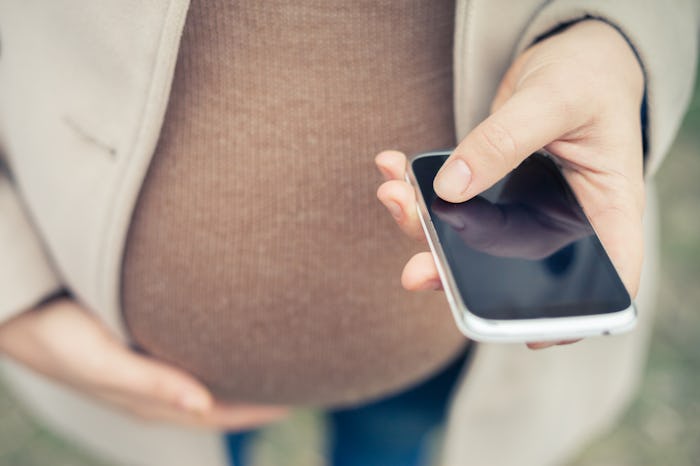Life

Will I Know If I'm In Labor?
For many first-time moms, going into labor is as nerve racking as it is exciting. You're ready to meet that tiny baby you've been carrying for nine months, but are nervous about the unknown factors of delivery. Some moms even worry about being in labor without knowing it. If you've asked yourself "will I know if I'm in labor" you're not alone. Although you'll definitely know you're in labor without a doubt at some point, the beginning phases can be a bit ambiguous.
Every woman's experience with labor is different, which makes knowing whether or not you're definitely in labor even more tricky. According to Baby Center, labor can progress very slowly in the beginning, especially for first-time moms. You may notice things like slight cramping, or even leaking (which you should always have checked out by your doctor to make sure it's not amniotic fluid. But your water may not break in a gush of fluid giving you a sure sign that )it's "go time."
What to Expect noted that there are some early signs of labor that you might notice without even realizing that labor is slowly progressing. These signs won't necessarily happen to every woman and you might notice some but not all of them in the weeks leading up to your delivery.
Your baby will "drop" lower into your pelvis before you go into labor. Although Baby Center noted that this can happen at different times for each pregnancy, you may notice that your belly looks different, or that you can feel your baby extremely low in your pelvis. Dropping is a good thing — despite how uncomfortable it can be — because it means your baby is that much closer to the birth canal.
In your final checkups at your OB-GYN, they'll also check your cervix to see if it's begun to dilate. Dilation can happen weeks or even a month before your labor actually starts, according to What To Expect, but it's a great sign that things are moving in the right direction. You might also experience increased back pain or mild cramping or increased Braxton Hicks contractions.
The above signs can all occur weeks or days before you actually go into labor, but there are even more things that might happen mere hours before your body decides to go into labor. Parents noted some more immediate signs of labor like an increase in vaginal discharge as you loose your mucus plug, experiencing contractions that get more intense and closer together, and of course, your water breaking. The rule of thumb is once your contractions come every three to four minutes and last for 45 to 60 seconds, it's time to head to the hospital or birth center.
Although labor may sneak up on you, once you're in active labor, you'll definitely know that your baby will be making their grand appearance soon.